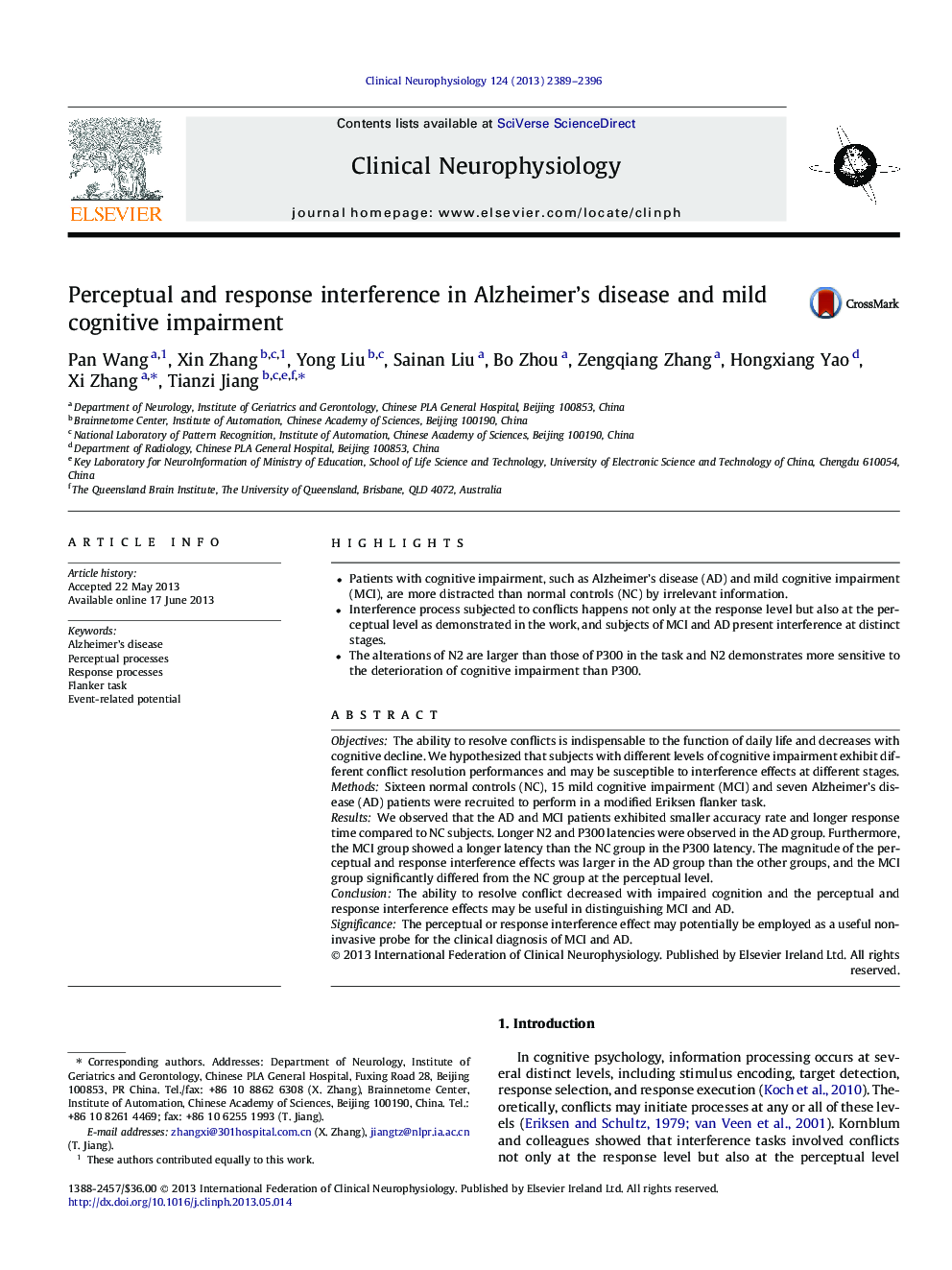| Article ID | Journal | Published Year | Pages | File Type |
|---|---|---|---|---|
| 3044216 | Clinical Neurophysiology | 2013 | 8 Pages |
•Patients with cognitive impairment, such as Alzheimer’s disease (AD) and mild cognitive impairment (MCI), are more distracted than normal controls (NC) by irrelevant information.•Interference process subjected to conflicts happens not only at the response level but also at the perceptual level as demonstrated in the work, and subjects of MCI and AD present interference at distinct stages.•The alterations of N2 are larger than those of P300 in the task and N2 demonstrates more sensitive to the deterioration of cognitive impairment than P300.
ObjectivesThe ability to resolve conflicts is indispensable to the function of daily life and decreases with cognitive decline. We hypothesized that subjects with different levels of cognitive impairment exhibit different conflict resolution performances and may be susceptible to interference effects at different stages.MethodsSixteen normal controls (NC), 15 mild cognitive impairment (MCI) and seven Alzheimer’s disease (AD) patients were recruited to perform in a modified Eriksen flanker task.ResultsWe observed that the AD and MCI patients exhibited smaller accuracy rate and longer response time compared to NC subjects. Longer N2 and P300 latencies were observed in the AD group. Furthermore, the MCI group showed a longer latency than the NC group in the P300 latency. The magnitude of the perceptual and response interference effects was larger in the AD group than the other groups, and the MCI group significantly differed from the NC group at the perceptual level.ConclusionThe ability to resolve conflict decreased with impaired cognition and the perceptual and response interference effects may be useful in distinguishing MCI and AD.SignificanceThe perceptual or response interference effect may potentially be employed as a useful non-invasive probe for the clinical diagnosis of MCI and AD.
